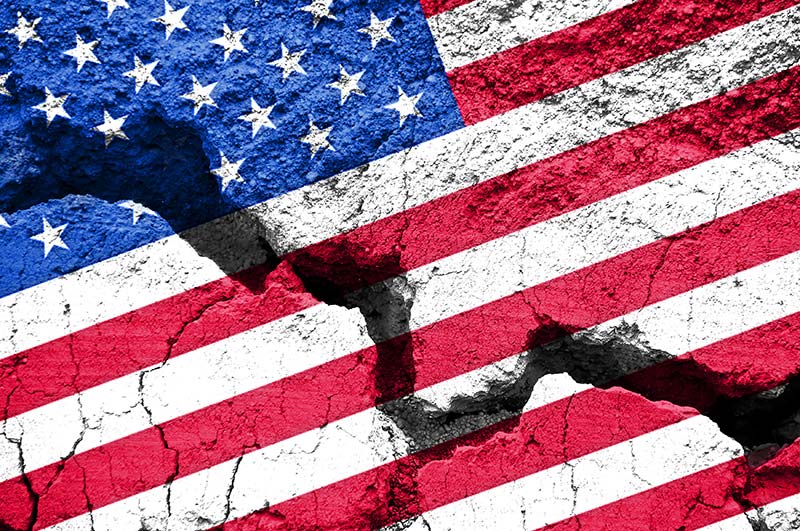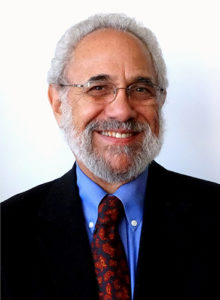I and many others have said it before but, as recent events make clear, we will have to say it again and again and again: Mental illness is not the cause of mass murder in the United States.
The continuing assertion by the political right that it is has become a core element of the vituperative and dangerous political division that besets the United States today. It is effective as political rhetoric because of the widespread misbelief that people with serious mental illness are violent and dangerous – i.e., because of continuing pervasive stigma about mental illness. In the hands of the political right, stigma has become a political weapon.

The mental health community, whether liberal or conservative on other issues, needs to conceptually disarm those who rely on the slogan that the problem of violence is mental illness, particularly those who refuse to confront guns as a major vector of death in the United States.
We need to continue to make the facts clear.
- People with mental illness rarely commit homicide, and few homicides are committed by people with mental illness. About 5% of homicides are committed by people with psychotic conditions.
- People with serious mental illness are far more likely to be victims than perpetrators.
- Most mass murders are committed by people who are not seriously mentally ill including:
- Terrorists
- Racists
- Religious bigots
- People who commit purposeful acts of murder or manslaughter or who commit crimes that result in unintended deaths
- Perpetrators of domestic violence
- People seeking revenge
- And more…
It is notable that in its Global Study on Homicide, the UN Office on Drugs and Crime recognizes multiple motivations for murder and divides homicides into 3 types: socio-political, interpersonal, and criminal. But murder by people with psychosis is so rare that it is included only as a footnote.
- People with mental illness are far more likely to take their own lives than the lives of other people. This became an increasingly serious problem in the first two decades of the 21st century. According to the CDC, the rate of suicide has increased 32% since the beginning of the century and is now roughly double the rate of homicide, which remained about the same from 2000-2019, but jumped about 30% in 2020 and apparently is continuing to rise.
In addition to repeatedly making the facts clear, mental health advocates need to resist the temptation to use recent increases in homicides, including mass murders, as a rationale for calling for improvements in America’s mental health system. There are numerous reasons why there should be massive improvements; reducing murder is not one of them. Reducing suicide, yes. Increasing the capacity to provide and to get access to treatment for mental illness, yes. Improving the quality of available services, yes. Reducing fragmentation, yes. Addressing social determinants of mental illness, yes. But improving the mental health system to reduce murder, maybe very slightly, probably negligibly – really no point.
In fact, calling for a better mental health system because of the rise of homicides undoubtedly results in reinforcing the misbelief that people with mental illness are to be feared because they are violent and dangerous. It results, that is, in reinforcing stigma.
Reducing the stigma of mental illness is among the most important improvements needed in America’s efforts to help people with mental illness. It is needed to open the doors of the community and to provide opportunities to people with histories of mental illness who now suffer discrimination in housing, work, education, health care, and even access to houses of worship. Addressing stigma is also needed to reduce the shame that people with histories of mental illness often feel, shame that drives them into hiding and contributes to their reluctance to use mental health services that might help them.
And in the current climate I would add that addressing stigma is needed to remove a powerful political weapon – the frightening belief that people with mental illness are dangerous – from those on the political right who use it to rationalize their resistance to “common sense measures” – such as gun control – to bring down the horrifying rate of homicide and mass murder in the United States today.
Stigma about mental illness, from this point of view, is not just a problem for people with mental illness and their families. It has become a dangerous weapon in American politics, a weapon reinforcing the frightening divisions in American politics today.
The views expressed in this article are those of the author and are not necessarily those of Behavioral Health News or its publisher, Mental Health News Education.
Michael B. Friedman is a retired social worker who has worked in the field of mental health for over 50 years. He teaches mental health policy at Columbia University School of Social Work and serves as a volunteer social advocate as Chair of the Cognitive and Behavioral Health Advocacy Team of AARP Maryland. His writings can be found at www.michaelbfriedman.com. He can be reached at mf395@columbiauniversity.edu.





